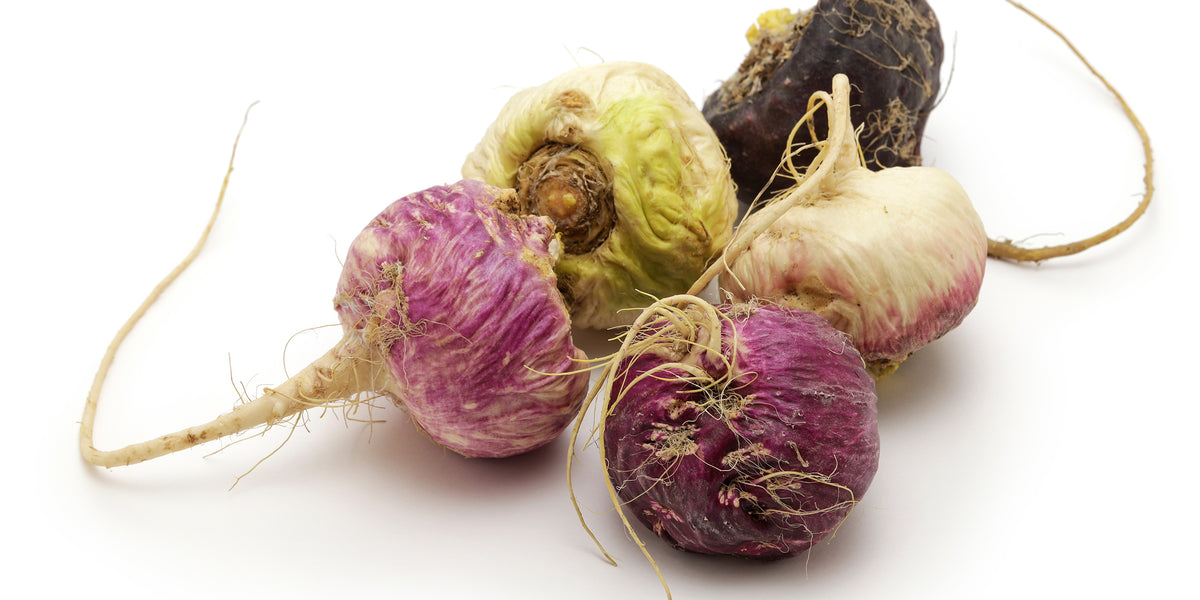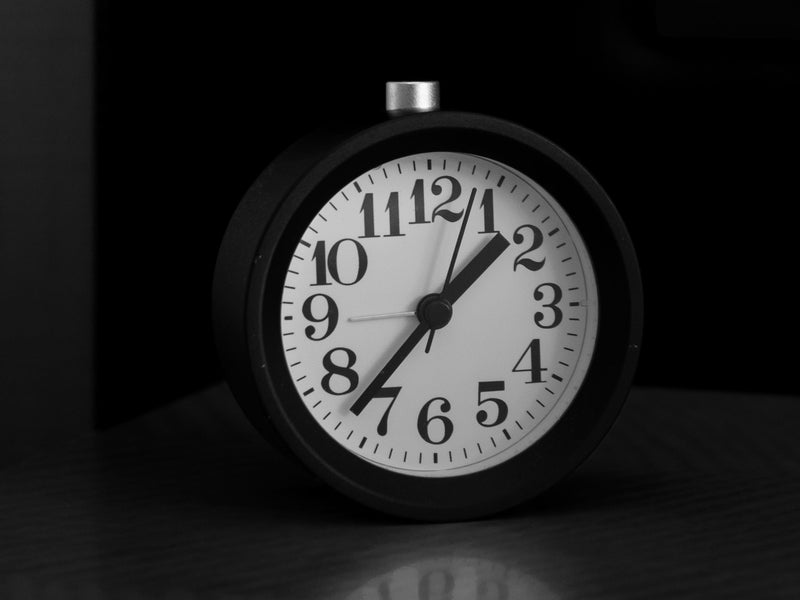Maca: The Perfect Pick-Me-Up
Maca is a triple threat for libido support. By relieving stress, boosting energy and balancing hormones, maca addresses low sex drive in women over 40 from multiple angles. Because sexual wellness is more nuanced than just one “symptom” and maca helps deliver in our Libido herbal tincture.
Why We Love Maca
- Not only does maca root increase libido in women, it’s also excellent all-around for perimenopause. You can read all about maca for women over 40 here.
- Maca also features in our stress-relieving chai drink, Stave the Crave. It’s delicious, can help you wind down and curb stress eating.
Key Benefits:
Increases Libido - It’s common for women over 40 to feel our libido waning, and one of the reasons is changing hormone levels. There’s good news, though. In double-blind, placebo-controlled clinical trials with women over 40 and women taking antidepressants, maca-using women reported having more sex and enjoying it more. They reported higher levels of arousal and more orgasms (which are great for your overall health, by the way). No wonder that maca earned its place in our Libido herbal tincture.
Women’s Stress Relief - Stress and sex don’t really mix. Not only is it hard to truly enjoy the moment if your mind is racing, but your body’s stress response is physiologically incompatible with arousal — no one talks about fight, flight, freeze or fornicate. Thankfully, maca is clinically shown to significantly reduce stress.
This is especially relevant because women over 40 are statistically super stressed. An astounding number of women over 40 take antidepressants, which (surprise!) can dampen libido. Talk about a vicious cycle!
Boosts Energy - After a long day of taking care of business, it’s understandable if sex sounds less desirable than a night of ice cream and Netflix. The natural boost of energy from maca can wake you up to the possibility of a romantic encounter. What’s more, it shouldn’t leave you wired late into the night like a cup of coffee might—or hungover.
Natural Hormone Balance - Many women who take maca experience better hormonal balance, resulting in fewer hot flashes and night sweats, PMS symptoms and an elevated mood. Researchers are still trying to figure out exactly how maca works to balance hormones, but the leading evidence indicates that it boosts testosterone production. Yes, we think of estrogen as the female sex hormone, but declining testosterone levels are also part of perimenopause’s great hormonal shift.
Traditional Uses:
Maca use goes back to before the Incan Empire was in power. This little tan root was a huge food source and such an important part of Incan culture that, according to legend, whole wars were fought over land that was optimal for maca cultivation. We don’t condone violence, but they were onto something.
The Quechua people of Peru still use maca as food and medicine. Quechua physicians often prescribe maca to:
- Increase libido
- Enhance fertility
- Boost energy and physical strength
About the Plant:
Maca is native to the Andes and grows well in harsh conditions at high altitudes. The medicinal root, which is often prepared as a powder, looks quite a bit like a brown turnip.
Wile Products With Maca:
Things to Know about Maca:
Maca is part of the brassica family of vegetables, which includes broccoli, kale and brussels sprouts. If you’re allergic to these vegetables, avoid maca.
You can consume maca both as a food and in higher concentrations as a supplement. As a food, it is considered very safe for all people.
Pregnant people and those with hormone-sensitive conditions should talk to their doctor before taking high quantities or concentrations of maca.
Clinical Research
- Brooks, Nicole L, Gisela Wilcox, Karen Walker, John R Ashton, Marc B. Cox, and Lily Stojanovska. “Beneficial Effects of Lepidium Meyenii (Maca) on Psychological Symptoms and Measures of Sexual Dysfunction in Postmenopausal Women Are Not Related to Estrogen or Androgen Content.” Menopause 15, no. 6 (November 1, 2008): 1157–62. https://doi.org/10.1097/gme.0b013e3181732953.
- Dording, Christina, Lauren B. Fisher, George I. Papakostas, Amy Farabaugh, Shamsah B. Sonawalla, Maurizio Fava, and David Mischoulon. “A Double-Blind, Randomized, Pilot Dose-Finding Study of Maca Root (L. Meyenii) for the Management of SSRI-Induced Sexual Dysfunction.” CNS Neuroscience & Therapeutics 14, no. 3 (September 1, 2008): 182–91. https://doi.org/10.1111/j.1755-5949.2008.00052.x.
- Dording, Christina, Pamela J. Schettler, Elizabeth M. Dalton, Susannah R. Parkin, Rosemary A. Walker, Kara B. Fehling, Maurizio Fava, and David Mischoulon. “A Double-Blind Placebo-Controlled Trial of Maca Root as Treatment for Antidepressant-Induced Sexual Dysfunction in Women.” Evidence-Based Complementary and Alternative Medicine 2015 (April 14, 2015): 1–9. https://doi.org/10.1155/2015/949036.
- Meissner, H O, A. Mscisz, H Reich-Bilinska, Przemyslaw M. Mrozikiewicz, Teresa Bobkiewicz-Kozłowska, B Kedzia, A. Lowicka, and I Barchia. “Hormone-Balancing Effect of Pre-Gelatinized Organic Maca (Lepidium Peruvianum Chacon): (III) Clinical Responses of Early-Postmenopausal Women to Maca in Double Blind, Randomized, Placebo-Controlled, Crossover Configuration, Outpatient Study.” International Journal of Biomedical Science : IJBS, December 1, 2006.
- Shin, Byung-Cheul, Myeong Soo Lee, Eun Jin Yang, Hyun-Suk Lim, and Edzard Ernst. “Maca (L. Meyenii) for Improving Sexual Function: A Systematic Review.” BMC Complementary and Alternative Medicine 10, no. 1 (August 6, 2010). https://doi.org/10.1186/1472-6882-10-44.
- Stojanovska, Lily, Chung K. Law, Beatrice P. Y. Lai, T. Chung, Kristina Nelson, Stephanie S. Day, Vasso Apostolopoulos, and Christopher J. Haines. “Maca Reduces Blood Pressure and Depression, in a Pilot Study in Postmenopausal Women.” Climacteric 18, no. 1 (January 2, 2015): 69–78. https://doi.org/10.3109/13697137.2014.929649.
- Uchiyama, Fumiaki, Tamaki Jikyo, Ryosuke Takeda, and Misato Ogata. “Lepidium Meyenii (Maca) Enhances the Serum Levels of Luteinising Hormone in Female Rats.” Journal of Ethnopharmacology 151, no. 2 (February 3, 2014): 897–902. https://doi.org/10.1016/j.jep.2013.11.058.
Sources
- Black, Jerry. “Maca’s History & Origins and Why It Was Forgotten - Herbs America, Inc.” Herbs America, Inc., December 5, 2022. https://herbs-america.com/macas-history-origins/.
- “Maca – Health Information Library | PeaceHealth,” n.d. https://www.peacehealth.org/medical-topics/id/hn-4392007#:~:text=Maca%20root%20has%20been%20an,endurance%2C%20libido%2C%20and%20fertility.
- McCulloch, Fiona. “Fertility Herb Maca Improves LH Surge.” White Lotus Clinic, December 8, 2020. https://www.whitelotusclinic.ca/fertility-herb-maca-improves-lh-surge1219/#:~:text=The%20study%20found%20that%20maca,pituitary%20gland%20in%20the%20brain.
- Pizzorno, Joseph E., Jr, Michael T. Murray, and Herb Joiner-Bey. The Clinician’s Handbook of Natural Medicine. Elsevier Health Sciences, 2016.
This article is intended for informational purposes and is not intended to replace a one-on-one medical consultation with a professional. Wile, Inc researches and shares information and advice from our own research and advisors. We encourage every woman to research, ask questions and speak to a trusted health care professional to make her own best decisions.




